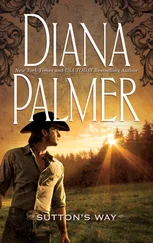Nik took us out in his purple 1967 Chevy Nova. It was kind of a shit car, but it was a cool shit car. Nick got it cheap, he spent all last summer working as a busboy until he had the money. He quit the job, and now it is a bit of a mystery where he gets his spending money, but I have a few guesses. Like my mom, I pretend not to think about it. We are all really good at pretending we are a normal family, and somehow us pretending all at once is a big part of what makes us feel like a family. It is like a willed self-delusion. Or maybe you can lie to yourself, that’s a self-delusion, but if you have a delusion about several people, if you all share in this delusion, that isn’t a self-delusion, is it? That is a family.
The car is a necessity. We get in, roll down all the windows, and play the radio loud. We all light cigarettes. We drive around. Nothing is really going on. We are bored. We end up at a stupid party for rich high school kids in Westwood. I see no one I want to talk to and I think it is a horrible scene, but then I notice Nik making out with a little blond girl. She’s on his lap, and I can tell by the way they are interlacing their fingers and then staring at them that they have taken acid. I sigh.
“Call your mom to come pick us up,” I say to Lisa. She nods. We leave Nik there.
When I open the door, I collapse a little at the thought of the empty house. Without my mother or Nik, I feel more alone than frightened, and I quickly turn on the TV to hear something besides my own breathing. The house is small, low-ceilinged, and contained. I walk through the kitchen to the back door. I walk to the garage, which has become Nik’s studio. I use the hidden spare key, open the side door, and snap on the light. Nik has a couch covered by one of our old thick chenille bedspreads. It is the perfect place to sit and listen to music. He has a pretty good stereo and a set of excellent headphones. He has a makeshift coffee table with a board set on top of it. The board is full of ink marks. Nik likes to sit at the table and draw while he listens to the music. His ink drawings cover the ceiling. Most of them are his album covers. He always draws himself the same, as Nik Kat, his alter ego from his zine days, now grown up, a tall skinny man with a cat head. The style is very Comix, but old-timey-looking, like WWII propaganda cartoons. Nik Kat’s stock pose is bent back from the stomach, as if he has just been punched. His ever-present cigarette is in midair in front of his open mouth. The eyes bug, the hat flies up. I have no idea why Nik depicts himself that way. But Nik Kat is everywhere, even if he is only a little figure in the corner of a larger work. The walls of the garage are lined in carpet pieces to muffle sound. I sit on the couch. It smells of incense and pot and cigarettes. But the place is actually quite orderly and neat. Nik is not a slob. Every surface is covered, but it looks good, it all works and creates a little world. The part of the garage opposite the couch has the band area: guitars, drum kit, keyboard. There is a microphone and some small amplifiers. The ink drawings on the ceiling, the walls with the carpet pieces, the gear — it all looks great somehow. All the layers and odd juxtapositions — it is as if everything in his head splays out onto the walls.
I look for cigarettes in the set of drawers by the couch. He has three copies of a Peter Max poster side by side on the back wall. They are mounted on cardboard and tacked into the carpet. They have lots of pink and blue rainbows and stars, and a huge Pan Am 747 flying away from an earthlike head. If Nik likes something, he can’t get enough of it. Sometimes he repeats things exactly, sometimes with a slight variation. I dunno, I think it is like verse-chorus-verse-chorus. Or how you really love a song after you’ve heard it over and over, how your body feels almost desperate for the next part.
He keeps his records in a row, not in alphabetical order, but in an order based on Nik’s very personal and constantly changing categories. He calls his system idiosyncratic. He looked it up in the dictionary, and it comes from the Greek word for private and the Greek word for mixture . So the categories are Nik’s private mix of concerns. Which means not my concern, I guess, or Go ahead and try to figure it out . I turn on the stereo, drop the needle on the record by some band I never heard of. I listen to the chiming acoustic guitar, the gentle-boy vocal, the sweet harmonies. The lyrics are childlike and innocent, but there is a little edge of want under it that feels kind of sexy. It is hard not to wish for a boyfriend who would sing like this. The song ends with a sloppy dribble out and then slips right into a hard electric guitar riff. The next song isn’t slow or sweet, but the singer likes to slur the words, mangle them until he sounds almost deranged with want. Like he can’t quite get it together because he has it so bad for this girl. Then he’s back to singing a slow song, and he’s hurting, sad, his voice is cracking, and then, yikes, there are even some string instruments, a kind of orchestration. He almost loses me, but just at that moment the harmonies overwhelm the strings and the next tough-sweet guitar riff comes in. I am won — all of it, even the dreaded violins. Now I really feel something: love, sure, need, sure, even hurt, just everything all at once for these guys. I look at the album cover. I lie on the couch. I turn it up. Totally ordinary-looking, but I want one for a boyfriend. Just one word-tripping sloppy boy who I could make stammer and beg. But with harmonies and melody and all those angelic high notes. I start the slow song again. That voice, I can’t explain how much it fits with what I am feeling, what I want and need, alone in the garage. I start to sing along and I feel something else: I feel like I am him, this is my little edge of want. So I want to be the voice and I want to be the one the voice wants. All of it at once. I want it so bad.
Although this novel is a work of fiction and Nik Worth is a character of my imagination, my inspiration for him is a real-life person, my stepfather, Richard Frasca, a.k.a. Jon Denmar. Richard Frasca is not Nik Worth, but Richard’s devotion to his own music and Richard’s self-documented chronicle of his life as a secret rock star gave me the idea for Nik. Thank you, Richard, for your generosity. You are a true artist. Viva Village.
I want to thank the John Simon Guggenheim Memorial Foundation for supporting my work. Thank you to the American Academy of Arts and Letters and the American Academy in Rome. Thank you to the New York Foundation for the Arts. This book would not have been possible without the help of these foundations.
Clement Coleman helped me write the lyrics to “On the Occasion of Being Interviewed for My Niece’s Documentary.” Clem also let me take his titles Breakfast at Kingdom Come and Meet Me at the Movies . Thank you for constantly inspiring me with your hardworking songwriting ways. I also want to thank Emy and Kathy Frasca. I’m indebted to the many people who helped answer my questions: Marna Nape, Katherine Waterson, David Humphrey, Kurt Rohde, Keeril Makan, Dwynn Golden, Patrick Williams, Shahram Victory, and Martin Brody. Thank you to George Andreou, Rick Moody, and André Bernard. Thank you to everyone at the Syracuse University Creative Writing Program.
As always, I am deeply grateful for the generous support of Nan Graham, Melanie Jackson, and Don DeLillo.
Dana Spiotta is the author of Eat the Document, whch was nominated for a National Book Award. Her first novel, Lightning Field, was a Los Angeles Times Best Book of the West and a New York Times Notable Book of the Year. Spiotta received the Rosenthal Foundation Award from the American Academy of Arts and Letters. She was a Guggenheim Fellow in 2007 and New York Foundation for the Arts Fellow in 2008. The American Academy of Arts and Letters and the American Academy in Rome awarded her the 2008 Joseph Brodsky Rome Prize.
Читать дальше












